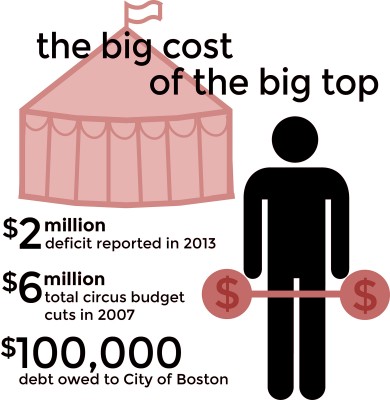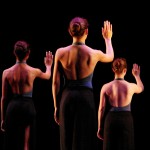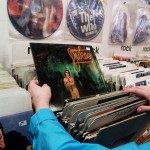
The circus, with its large tents, clowns, crowds of people and acrobats, is not an experience that would generally be described as intimate. However, the Big Apple Circus is trying to change that with their new show, “Metamorphosis,” opening outside Boston City Hall Plaza on Tuesday.
“From the minute you come in, you realize it’s going to be a different kind of show,” said Ringmaster John Kennedy Kane. “No seat is more than 50 feet away. We have cotton candy and the things you’d expect as souvenirs, but we have no vendors in the seats, so the focus is on the show.”
The Big Apple has been operating for 37 years, but “Metamorphosis” is a new show, with a brand new story line and acts. In his second show with Big Apple, director West Hyler is putting to work his Broadway experience as associate director of “Jersey Boys” and “How the Grinch Stole Christmas” to Big Apple, Kane said, creating a show about transformation both around and within the audience members.
“It’s not a circus guy coming in and saying how to do a circus,” Kane said. “He has a whole different outlook.”
That emphasis on uniqueness seeps into other aspects of the organization, Kane said. The Clown Care program brings the circus to hospitalized children in 16 pediatric facilities across the country. The Big Apple has performances they call “Circus for the Senses,” specifically designed for children who are blind or hearing impaired, and they have recently launched a special show for families with autism.
“This is the finest circus I’ve ever been on. I’ve been on circuses where the most important part was getting to the net town, getting the tent set up. The most important part was getting the popcorn ready, the cotton candy, souvenirs, so that we can sell to the audience. That’s not the case at Big Apple. The most important thing is the performance,” Kane said.
That said, circuses as a whole have been losing popularity among current generations, less talked about and less publicized and often faced with harsh criticism, mainly for their treatment of animals. The Ringling Bros. Circus announced on March 5 that they will be retiring all of their elephant acts by 2018, after struggling with both criticism and legislation that make planning tours difficult for the company.
Katie Adams, a senior at Boston University and a member of the school’s equestrian team, has worked behind the scenes in a circus and seen the treatment of horses in a circus environment.
“[On site], they had open stalls to move around in and bedding to protect their joints from the hard concrete,” Adams said. “They don’t get freedom of grass and open pasture, but they weren’t put in standing stalls. The hardest part for these animals is the constant travel … hours of standing upright balancing in a moving vehicle. Overall, I don’t think the horses live the best life at the circus, but there are horses that live far worse lives in people’s backyards.”
Kane was adamant, though, that the animals at the Big Apple Circus are appreciated and respected by all members of the cast, most importantly the trainers.
“The cast of the circus loved them, which was key,” Adams said, remembering her own circus.
In general, Kane doesn’t see any downward trend. To him, the popularity of circuses, and the desire to join them, has remained steady and if anything, is increasing.
“We still get great crowds,” he said. “There’s at least 300 circus programs in the United States, and some of them are offered at colleges. We have many aerialists who come to us that are already trained. They come with a degree, or they come with training. I didn’t have anything like that.”
Kane acknowledged, though, that circuses might not be as popular with younger generations, but blamed this on their lack of exposure.
“There are no circuses on TV, no circus cartoons. I used to watch an annual big circus on TV every year,” Kane said. “I don’t think kids are asking their parents, ‘Please take me to the circus!’ I don’t think they know, but the parents and the grandparents remember their experiences at the circus, and that’s why they bring the kids.”
In his eyes, whether it’s their commitment to performances, their community programs or their intimate family atmosphere, something about the Big Apple Circus is keeping them relevant and bringing in large audiences.
“This show is really different,” Kane said. “It has a really nice storyline and a good feeling when you leave. You’ll feel that you really have seen something.”
The Big Apple Circus will be performing in Boston at City Hall Plaza from Tuesday to May 10.













